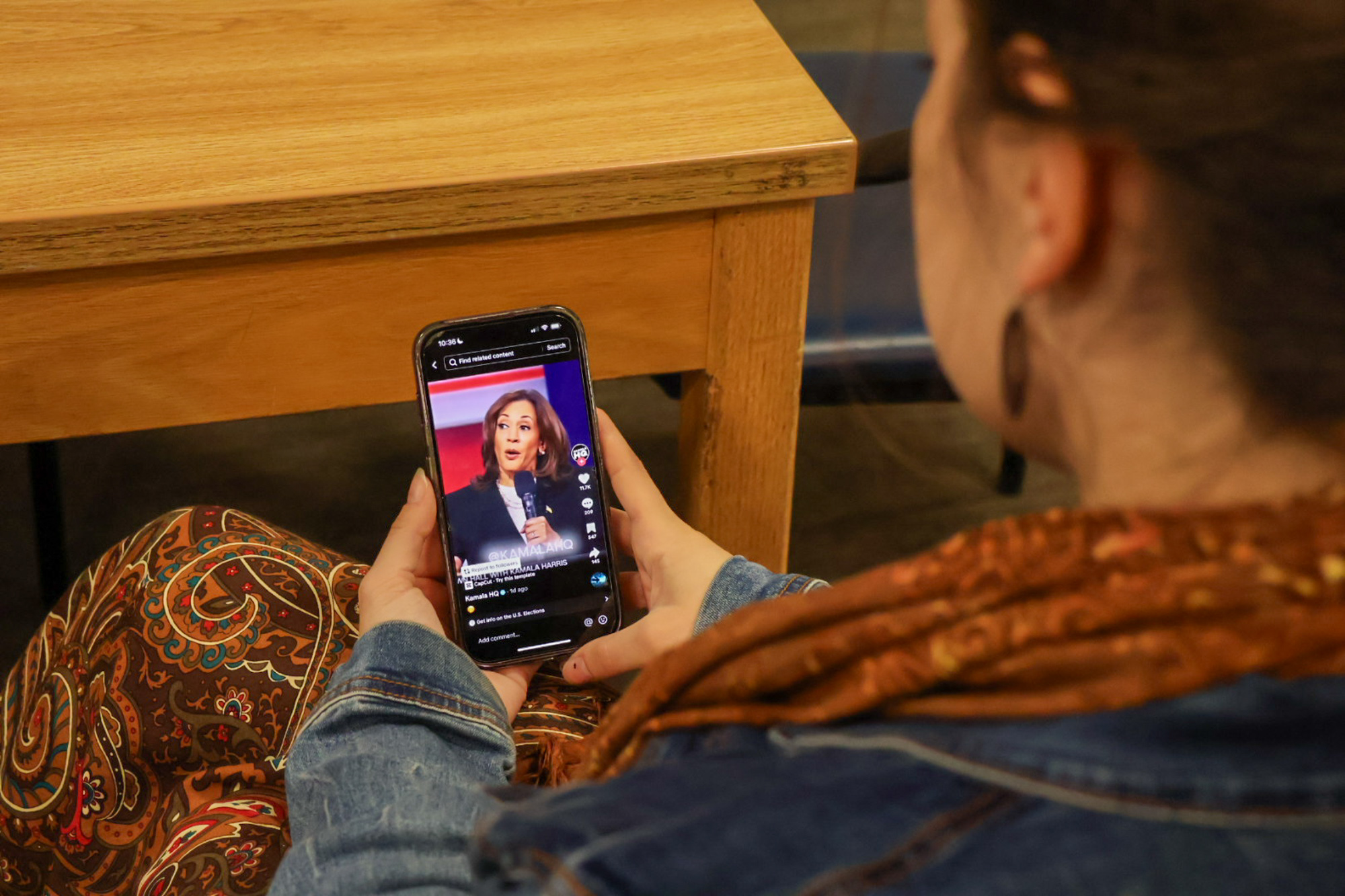Donald Trump. Logan Paul. Kamala Harris is “Brat.” A “Saturday Night Live” vice presidential debate sketch. Swipe to read more. Retweet if you agree.
Being on social media during this election year could be a modern parody of “We Didn’t Start the Fire.”
News clips, memes, footage of rallies and colorful infographics flooded social media in the months leading up to the 2024 Presidential Election on Nov. 5.
Now the “de facto method” for young people to access information, social media plays a large role in college students’ understanding of politics, said Denis Wu, a Boston University professor of communication specializing in the interplay of media and politics.
“Social media can be a pivotal way to persuade likely voters, especially younger voters, because younger audiences tend to rely more on social media,” Wu said.
When seeking political content on social media, most Americans consult X, followed by TikTok, Facebook and Instagram, according to Pew Research Center.
Many BU students use social media to spread awareness of the election and mobilize their peers to vote, said Hannah Wise, a senior majoring in public relations and political science. They often post information about voter registration and mail-in ballots, since 72% of BU students — many of whom are voting in their first presidential election — are not from Massachusetts.
Rebecca Brautigam, a sophomore, said reading infographics on Instagram has helped her understand candidates’ stances on certain issues, and seeing strong opinions on Facebook has drawn her attention to partisan extremes.
“Social media also kind of provides more empathy, because you see what other people would be impacted by [your vote],” she said.
Michelle Amazeen, associate professor of mass communication at BU, said she has noticed how students consume news passively — they let news find them rather than seeking it out.

“They’re just incidentally consuming news when they’re on social media,” Amazeen said. “They feel that, if it’s important enough, they’ll see it.”
Wu, who teaches courses in media theory, said college students favor “entertainment and emotionally loaded content” over informational news, as well as visuals over text. This finding — a product of dwindling attention spans — explains the bite-sized news clips and aesthetically pleasing infographics that reign online.
As a result, both the Trump and Harris campaigns embraced social media and its trends. This summer, Kamala HQ capitalized on Charli XCX fans’ online sentiment that Harris embodies the pop star’s album, “Brat.” Additionally, Team Trump regularly posts video edits of his rallies or making fun of his opponents.
“The candidates are going where audience members are,” Amazeen said. “Increasingly, Gen Z is not going to The Washington Post or to The New York Times. They’re on social media.”
Sophomore Tommy Cole, vice president of outreach for BridgeBU, a student organization focused on overcoming political divides, said he’s noticed politicians on both sides enlist influencers in an attempt to relate to younger voters, specifically through longform, sit-down podcasts.
Harris was a guest on the Oct. 6 episode of BU alum Alex Cooper’s “Call Her Daddy,” a sex and relationship podcast with predominantly female listenership. Trump has appeared on several podcasts this year, including Logan Paul’s “Impaulsive” on June 14 and more recently “The Joe Rogan Experience” on Oct. 25, both of which target male audiences.
“[Podcasts are] a very direct pipeline through social media to students in our generation to get them to vote,” Cole said. “I don’t know how much it sways someone’s opinion necessarily … but I do think it really raises awareness of the election itself.”
Amazeen noted the historical trend of candidates evading legacy media. She cited Franklin D. Roosevelt’s 1933-44 radio fireside chats and Donald Trump’s use of X, then Twitter, during the 2016 election.
Although Wise said she consumes a lot of news on social media, she based her vote on her own research.
“I was pretty firm on who I was voting for without social media, and I think if anything, seeing the clips on social media just reaffirmed my choice,” she said.
For senior Valeria Arango, who said she is “not very much into the whole politics” scene, social media brings a mix of viewpoints.
“Most people that post also are much more on one side versus the other,” she added.
Because social media algorithms curate users’ feeds based on their demographics and interests, they can contribute to confirmation bias: the tendency to search for information that aligns with one’s existing beliefs.
Wu said this creates echo chambers, which isolate “different perspectives or more complex situations” and worsen partisan extremes.
“The exclusive usage of social media for election-based information or decision making can be alarming [and] can be dangerous for democracy,” Wu said.
Still, Wu predicts social media will continue to influence voting habits in the long run. What remains uncertain is whether this influence will multiply as current Gen Zers’ social media use compounds as they get older.
“Four years from now, the 20-somethings will become 30-something and so on and so forth,” he said. “The impact could be gradually increasing as time goes on.”
However, Wise said social media provided her “an accessible platform to start learning about politics,” which in turn led her to study political science.
“Social media can be such a great tool for getting out political information,” she said. “But it’s also really important to take it with a grain of salt, do your own research and be mindful.”



















































































































